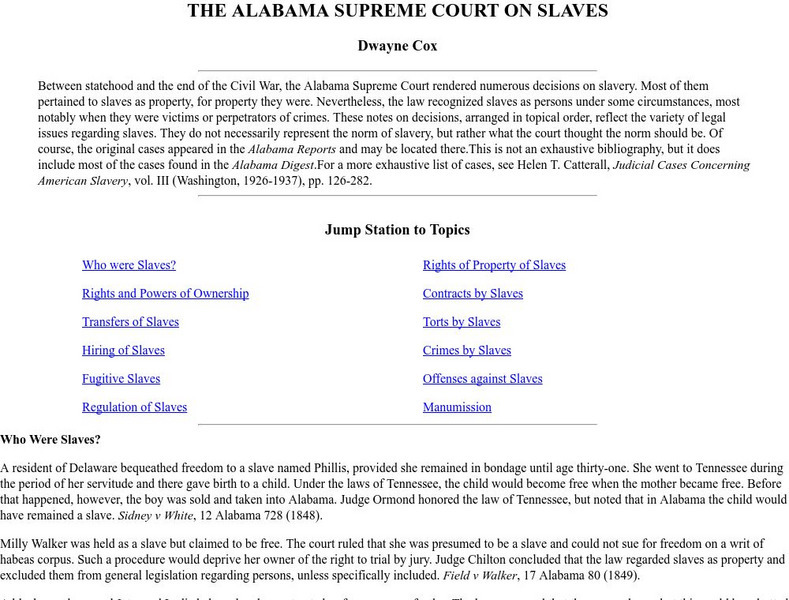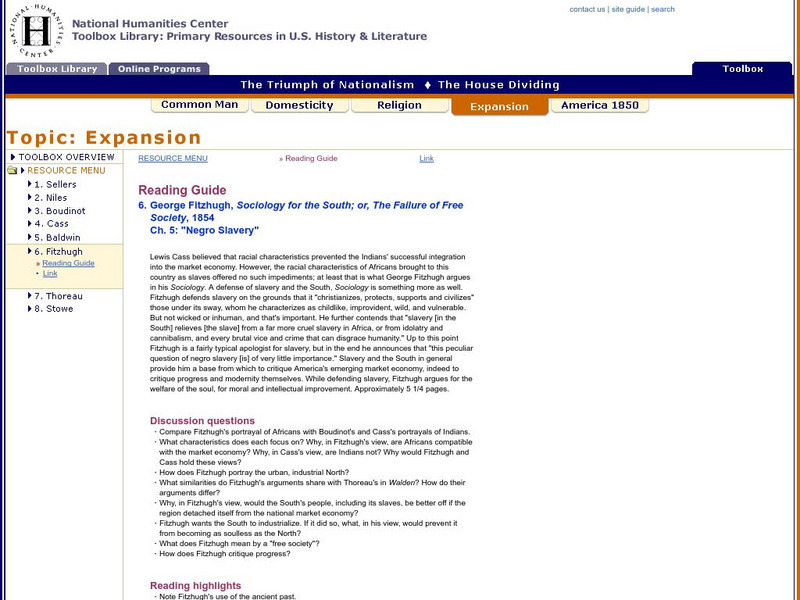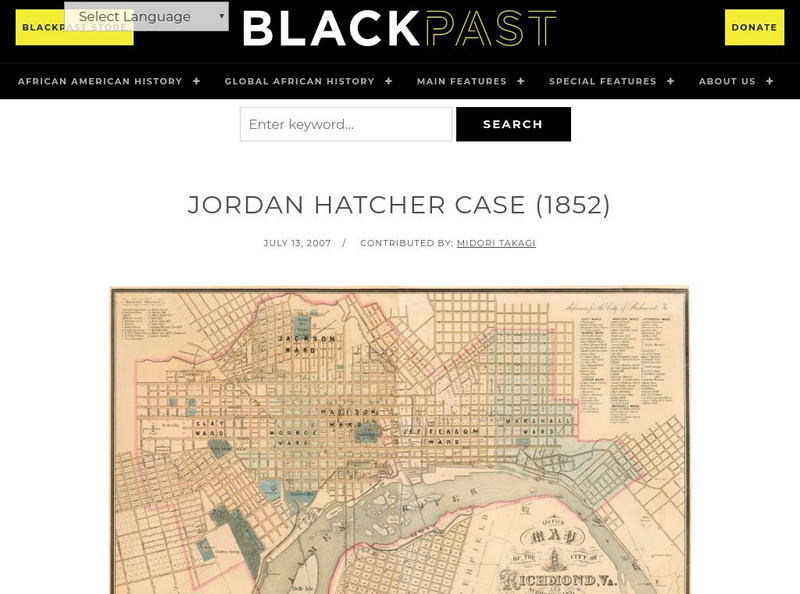Auburn University
Auburn University: The Alabama Supreme Court on Slaves
This historical summary covers information on slaves during the mid-19th century in the following areas: Who were Slaves?, Rights and Powers of Ownership, Transfers of Slaves, Hiring of Slaves, Fugitive Slaves, Regulation of Slaves,...
Digital History
Digital History: Meaning of Freedom: Black and White Responses to End of Slavery
Confederate defeat and the end of slavery brought far-reaching changes in the lives of all Southerners. The destruction of slavery led inevitably to conflict between blacks seeking to breathe substantive meaning into their freedom by...
National Humanities Center
National Humanities Center: Toolbox Library: George Fitzhugh: Sociology for the South: 1854: Religion
Two chapters from an apologist for slavery and his claims that slavery is Biblically justified and that church-state separation would lead to moral decay.
National Humanities Center
National Humanities Center: Toolbox Library: Reading Guide: George Fitzhugh: Chap. 5, "Negro Slavery"
A chapter in George Fitzhugh's apology for slavery in which he argues that slavery brings clear benefits to those who were enslaved.
Independence Hall Association
U.s. History: The Southern Argument for Slavery
In order to convince oneself that owning another was defensible, Southerners aruged that there were economic, religious, historical, and legal reaons that slavery was a good thing. Read about some of these justifications in more detail,...
Other
Online Archive of 19th Century u.s. Women's Writings: Emancipated Slaveholders
Writing in the 1840s, Lydia M. Child tells the story of ex-slavers living in Virginia. Demonstrates the complexity of the abolition debate in Pre-Civil War America.
Black Past
Black Past: Jordan Hatcher Case (1852)
Learn about the slave Jordan Hatcher who was charged with killing and assaulting a white man and how his trail affected others.








